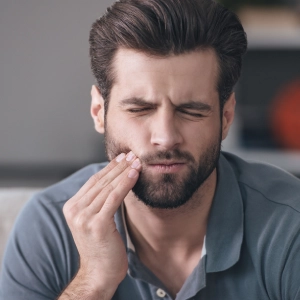To maintain good oral health, it is important to understand "What is a Dental Emergency and Where to go for care." Dental emergencies can happen suddenly and cause significant discomfort. In this guide, we'll explore what defines a dental emergency and offer guidance on where to seek immediate assistance when faced with urgent dental issues.
What is a Dental Emergency?
A dental emergency means you have a serious dental problem that needs urgent attention. It could be severe bleeding, strong pain that won't go away even with medicine, or a broken facial bone. These issues require immediate dental care.
What to do in a Dental Emergency?
In a dental emergency, it's crucial to stay calm and take the following steps:
- Contact Your Dentist: Contact your dentist immediately, especially if it occurs during office hours. Dentists often have emergency contact numbers for after-hours situations.
- Seek Urgent Care: If you cannot reach your dentist or if the emergency happens outside of office hours, visit an urgent care center or the nearest emergency room for immediate attention.
- Manage Pain: Try to alleviate pain by rinsing your mouth with warm water and using pain relievers as directed. Avoid aspirin directly on the gums to prevent irritation.
- Handle Dislodged Tooth: If a tooth gets knocked out, handle it by the crown (top), not the root, and rinse it with milk or saliva. Try to gently place it back into the socket if you can, or keep it moist in milk or saliva until you go and see a dentist.
- Control Bleeding: Apply pressure with clean gauze or a cloth to control bleeding from the mouth. A cold compress against the cheek or lips can help reduce swelling and alleviate pain.
Remember, dental emergencies require quick attention to avoid any complications and ensure the best possible outcome for your oral health.
Types of Dental Emergencies
During dental emergencies, it's important to know how to respond effectively. At Arlington Dental Excellence in Arlington, VA, our emergency team is equipped to handle various urgent dental issues, including:
- Toothaches: Severe pain signals an underlying issue. Ensure you rinse your mouth with warm saltwater and use a cold compress for facial swelling relief.
- Cuts to Tongue, Lip, or Cheek: Apply pressure with sterile gauze to control bleeding and seek medical attention if bleeding persists.
- Broken, Cracked, or Chipped Tooth: Rinse the area with warm water, apply a cold compress, and save any tooth fragments if possible.
- Knocked Out Permanent Tooth: Hold the tooth by the crown, rinse, and keep it moist in milk or water. Stopping bleeding is a priority.
- Broken Wires and Braces: Gently reposition wires or use a cotton swab for temporary relief until you can see your provider.
- Cold Sores, Canker Sores, and Abscesses: Over-the-counter medications may ease discomfort temporarily. Seek immediate care for abscesses to prevent infection spread.
Where to go for a dental emergency?
For common dental emergencies such as a broken or knocked-out tooth, your dentist's office is the best place for treatment. However, for more severe injuries like broken facial bones, it's advisable to go directly to the emergency room.
How can you prevent a Dental Emergency?
Preventing dental emergencies is key. Schedule regular check-ups every six months, and maintain good dental hygiene habits by brushing twice and flossing daily, and be cautious with hard foods like candy to avoid tooth damage.
How do you manage symptoms until seeing your dentist?
- Dull toothache: Rinse your mouth with lukewarm water, floss to remove debris, and take over-the-counter pain relievers like acetaminophen or ibuprofen. Avoid placing aspirin on gums and schedule a dentist appointment.
- Small chip or crack: If painless, wait for your dentist. Use orthodontic wax to cover sharp edges if they irritate your tongue or cheeks.
- Broken braces: Not an emergency unless bleeding. Gently adjust poking wires with a blunt object and cover them with orthodontic wax until dental care.
- Object stuck between teeth: Use dental floss or an interproximal brush for gentle removal. Avoid sharp instruments.
- Minor soft tissue injury: Rinse with salt water or mouthwash, apply pressure with clean gauze, and seek immediate care if severe bleeding persists beyond 20 minutes.
Conclusion
Understanding "what is a dental emergency and knowing where to go for care" is crucial for maintaining oral health. Remember, swift action can prevent further complications and alleviate pain. By staying informed and prepared, you can handle dental emergencies with confidence and ensure prompt treatment when needed.
Contact Arlington Dental Excellence in Arlington, VA, for dental emergency care. New patients can schedule appointments at (703) 420-3253 while existing patients can call (703) 525-0157. Book your appointment online or call us today for immediate assistance.
FAQ
Is a lost filling or crown considered a dental emergency?
While a lost filling or crown may not always be a dental emergency, it's essential to address it early to prevent further damage or discomfort. Contact your dentist as soon as possible to schedule an appointment for replacement.
When should I visit the emergency room for dental care?
You should visit the emergency room for dental care if you experience severe oral bleeding that doesn't stop, severe swelling that affects your breathing or swallowing, or if you've sustained facial trauma alongside dental injuries.
How can I manage dental emergencies at home before seeing a dentist?
Before seeing a dentist, you can manage dental emergencies at home by rinsing your mouth with warm saltwater, taking over-the-counter pain relievers, applying cold compresses to reduce swelling, and using orthodontic wax to cover sharp edges or broken braces. However, seeking professional dental care as soon as possible is important for proper treatment and evaluation.





